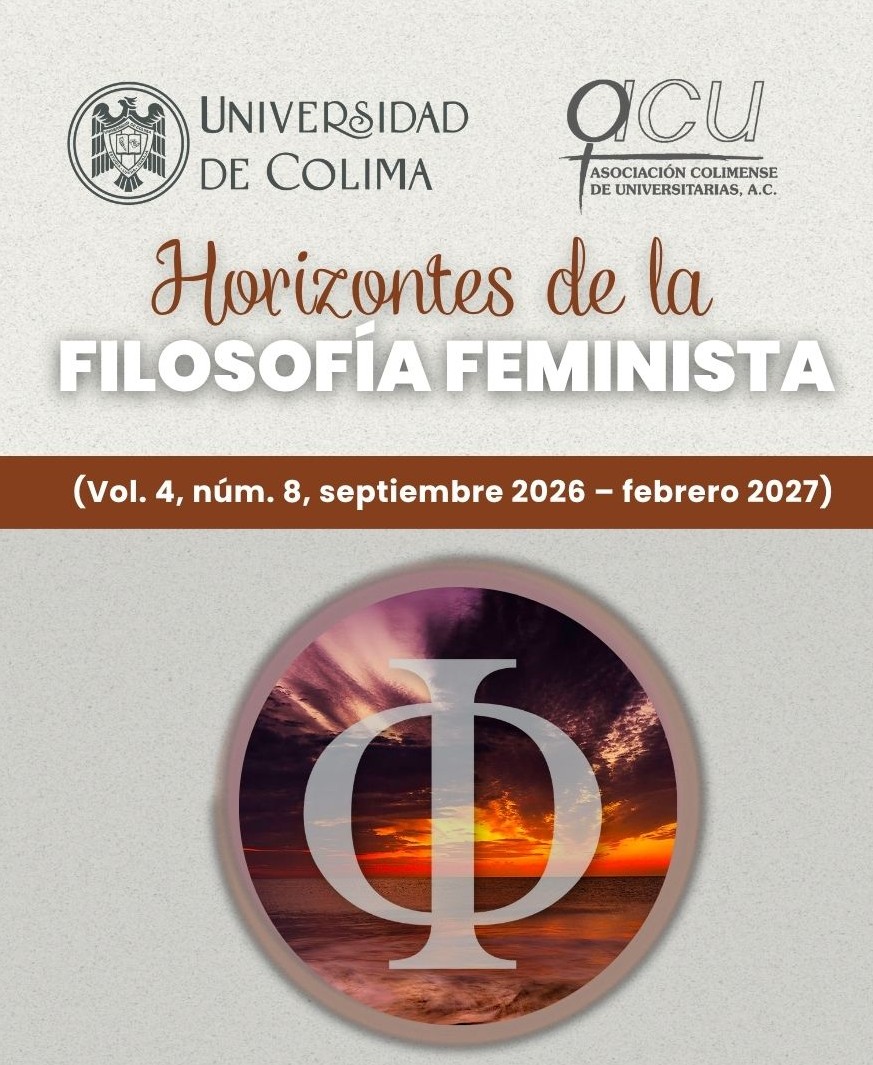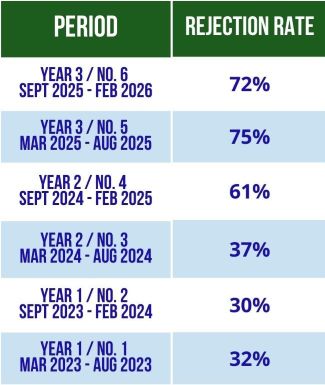COVID-19 a New Contributor of the Gender Gap?
Keywords:
gender gap, unpaid work, women in research, stay at home, pandemic in MexicoAbstract
During the lockdown due the pandemic caused by the SARS-CoV-2 Coronavirus, the gender inequity has increased negatively affecting participation and productivity of
women in science. In this comparative-descriptive work, we surveyed people employed in scientifical research; the results show a big part of those polled did scientific writing and research work online from home. A greater portion of
women performed fewer activities, such as writing scientific papers and research proposals, and even completely stopped their work in research. In parallel, the time devoted
to unpaid work, for example, meal preparation, was increased mainly for women (p<0.05). This inequity in unpaid work could be associated to different factors including the establishment of gender stereotypes and gender roles. In women, the increase in unpaid work and the decrease of research work could have important consequences in their professional careers, probably affecting productivity evaluations and consequently their labor status.
Downloads
Metrics
References
Ae-Kyung, J. y O’Brien, K.M. (2019). The profound influence of unpaid work on women’s lives: An overview and future directions. En: Journal of Career Development, 46(2), pp. 184-200.
Aguayo, E. y Lamelas, N. (2012). Midiendo el empoderamiento femenino en América latina. En: Regional and Sectoral Economic Studies, 12 (2), pp. 123-132.
Andersen, J.P.; Nielsen, M.W.; Simone, N.L., et al. (2020). COVID-19 medical papers have fewer women first authors than expected. En: eLife, 9, e58807.
Arvizu-Reynaga, A.V. (2020). Administrar, rendir y agotar el tiempo. Las jornadas de madres y padres universitarios. En: Revista interdisciplinaria de estudios de género de El Colegio México, 6, e478.
Auspurg, K.; Iacovou, M., y Nicoletti, C. (2017). Housework share between partners: Experimental evidence on gender-specific preferences. En: Social Science Research, 66, pp.118-139.
Cardel, M.I.; Dean, N., y Montoya-Williams, D. (2020). Preventing a secondary epidemic of lost early career scientists. Effects of COVID-19 pandemic on women with children. En: Annals of the American Thoracic Society, 17(11), pp. 1366-1370.
Carli, L.L. (2020). Women, gender equality and COVID-19. En: Gender in Management, 35 (7/8), pp. 647-655.
Cerrato, J., y Cifre, E. (2018). Gender inequality in household chores and work-family Conflict. En: Frontiers in psychology, 9, 1330.
Dernberger, B.N., y Pepin, J.R. (2020). Gender flexibility, but not equality: Young adults’ division of labor preferences. En: Sociological Science, 7(2), pp. 36-56.
Dilli, S; Carmichael, SG., y Rijpma, A. (2019). Introducing the historical gender equality index. En: Feminist Economics, 25(1), pp. 31-57.
Evans, M. L.; Lindauer, M., y Farrell, M. (2020). A pandemic within a pandemic-intimate partner violence during COVID-19. En: The New England Journal of Medicine, 383(24), pp. 2302-2304.
Feng, Z., y Savani, K. (2020). COVID-19 created a gender gap in perceived work productivity and job satisfaction: implications for dual-career parents working from home. En: Gender in Management, 35 (7/8), pp. 719-736.
Filardo, G.; da Graca, B.; Sass, D.M.; Pollock B. D., et al. (2016). Trends and comparison of female first authorship in high impact medical journals: observational study (1994-2014). En: BMJ, pp. 352, i847.
Franco-Orozco C.M., y Franco-Orozco B. (2018). Women in Academia and Research: An overview of the challenges toward gender equality in Colombia and how to move forward. En: Frontiers in Astronomy and Space Sciences, 5, Article 24, pp. 1-12
Gabster, B.P.; van Daalen, K.; Dhatt, R., y Barry, M. (2020). Challenges for the female academic during the COVID-19 pandemic. En: Lancet, 395(10242), pp. 1968-1970.
Gangl, M., y Ziefle, A. (2009). Motherhood, labor force behavior, and women’s careers: an empirical assessment of the wage penalty for motherhood in Britain, Germany, and the United States. En: Demography, 46(2), pp. 341-369.
García-González, J.; Forcén, P., y Jimenez-Sanchez, M. (2019). Men and women differ in their perception of gender bias in research institutions. En: PloS one, 14(12), e0225763.
Guzmán, J. (2017). Los indicadores de género. La ruta hacia la igualdad. En: Revista Internacional de Ciencias Sociales y Humanidades, SOCIOTAM, XXVII (2), pp. 133-147.
Huang, J.; Gates, A.J.; Sinatra, R., y Barabási, A.L. (2020). Historical comparison of gender inequality in scientific careers across countries and disciplines. En: Proceedings of the National Academy of Sciences of the United States of America, 117(9), pp. 4609-4616.
Jones, C.G., y Hawkins, S. (2015). Women and science. En: Notes and records of the Royal Society of London, 69(1), pp. 5-9.
Pinho-Gomes, A.; Peters, S.; Thompson, K., et al. (2020). Where are the women? Gender inequalities in COVID-19 research authorship. En: BMJ Global Health, 5, e002922. pp. 1-4
Qian, Y., y Fuller, S. (2020). COVID-19 and the gender employment gap among parents of young children. En: Canadian Public Policy, 46 (S2), pp. 89-101.
Ukhova, D. (2020). Gender division of domestic labor in post-socialist Europe (1994–2012): Test of class gradients hypothesis. En: Social Inclusion, 8(4), pp. 23-34.
Viglione, G. (2020). Are women publishing less during the pandemic? Here’s what the data say. En: Nature, 581(7809), pp. 365-366.
Sitios Web:
Alon, T.; Doepke, M.; Olmstead-Rumsey, J., y Tertilt, M. (2020). The impact of COVID-19 on gender equality. En: NBER Working Paper. No. 26947. Consultado el 25 de noviembre de 2020. Disponible en https://www.nber.org/system/files/working_papers/w26947/w26947.pdf.
Asociación Nacional de Universidades e Instituciones de Educación Superior de la República Mexicana, A.C (2020). Información Estadística de Educación Superior. Anuarios Estadísticos de Educación Superior. En: ANUIES. Consultado el 14 de diciembre de 2020. Disponible en http://www.anuies.mx/informacion-y-servicios/informacion-estadistica-de-educacion-superior.
Chauhan, P. (2020). Gendering COVID-19: Impact of the pandemic on women’s burden of unpaid work in India [versión electrónica]. En: Gender Issues. Consultado 9 de octubre de 2020. Disponible en https://doi.org/10.1007/s12147-020-09269-w.
Collins, C.; Landivar L.C.; Ruppanner, L., y Scarborough, W.J. (2020). COVID-19 and the gender gap in work hours [versión electrónica]. En: Gender, Work and Organization. Consultado 3 de diciembre de 2020. Disponible en: https://doi.org/10.1111/gwao.12506.
Consejo Nacional de Ciencia y Tecnología (2020). Género y Ciencia. En: CONACyT. Consultado el 20 de diciembre de 2020. Disponible en https://www.conacyt.gob.mx/index.php/el-conacyt/genero-y-ciencia.
Czymara, C.S.; Langenkamp, A., y Cano, T. (2020). Cause for concerns: gender inequality in experiencing the COVID-19 lockdown in Germany [versión electronica]. En: European Societies. Consultado 22 de octubre de 2020. Disponible en https://doi.org/10.1080/14616696.2020.1808692.
Farré, L; Fawaz, Y; González, L., y Graves, J. (2020). How the COVID-19 lockdown affected gender inequality in paid and unpaid work in Spain [Versión electrónica]. En: IZA Discussion Papers. No. 13434. Consultado el 5 de diciembre 2020. Disponible en http://ftp.iza.org/dp13434.pdf.
Hengel, E. (2017). Publishing while female. Are women held to higher standards? evidence from peer review [versión electronica]. En: Cambridge Working Papers in Economics, Consultado el 29 de noviembre de 2020. Disponible en http://www.erinhengel.com/research/publishing_female.pdf.
Instituto Nacional de Estadística y Geografía (2020). Resultados de la encuesta nacional de ocupación y empleo. Nueva Edición (ENOEN). Cifras durante el tercer trimestre de 2020. En: INEGI. Consultado el 8 de diciembre de 2020. Disponible en https://www.inegi.org.mx/app/saladeprensa/noticia.html?id=6048.
Ortiz-Ospina, E., y Roser, M. (2018). Economic inequality by gender [versión electronica]. En: Our World in Data. Consultado el 26 de noviembre de 2020. Disponible en https://ourworldindata.org/economic-inequality-by-gender.
Pérez, A.M. y Garda S.R. (2009). Guía metodológica para la elaboración de indicadores de género. Instituto de la Mujer del Estado de Campeche, México. Consultado el 01 de octubre de 2020. Disponible en http://cedoc.inmujeres.gob.mx/ftpg/Campeche/camp09.pdf.
Stotsky J.G.; Shibuya S.; Kolovich, L.L., y Kebhaj, S. (2016). Trends in Gender Equality and Women’s Advancement [versión electronica]. En: IMF Working Papers, 2016/021. Consultado el 12 de octubre de 2020. Disponible en https://www.imf.org/external/pubs/ft/wp/2016/wp1621.pdf.
Downloads
Published
How to Cite
Issue
Section
License

This work is licensed under a Creative Commons Attribution-NonCommercial-ShareAlike 4.0 International License.
GénEroos Magazine allows you to share, copy and redistribute the material in any medium or format; adapt, remix, transform and build upon the material, crediting the work appropriately and providing a link to the licence, indicating if changes have been made.








